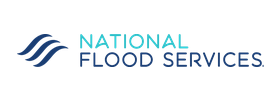Living in a gorgeous coastal city like Charleston has its upsides. Residents enjoy breathtaking sunsets, historical charm, and living in a vibrant southern community. Conversely, long-term residents know that coastal storms and hurricanes blowing through the city can have devastating financial and emotional effects.
The insurance professionals at South Carolina Federal Insurance Solutions want to help you minimize the financial aftermath that can result from flood damage.
Five Essential Flood Insurance Tips
Tip #1. Assess Your Home Flood Risk
The first step is to assess the flood risk for your property. Learn about risks to your property by evaluating local flood maps, analyzing past flood events, and seeking the advice of an experienced flood insurance agent.
Tip #2. Purchase Flood Insurance Coverage
Devastating tornadoes and hurricanes that spawn flooding can happen with little to no notice. Choose a comprehensive flood insurance policy that will protect your home’s structure and interior contents against the unexpected. Check out the online quoting option on our Flood Insurance page!
Tip #3. Stay Informed About Local Weather
Staying on top of local weather-related news events can help residents secure their valuables or erect emergency flood barriers.
Tip #4. Mitigate Flood Damage Risks
Mitigate the potential risks of damaging floods caused by rainstorms and storm surges by taking preventative measures. Elevating electrical systems, installing flood-resistant barriers, and maintaining proper drainages are all mitigation techniques that can reduce flood impacts.
Tip #5. Review Your Policy
Homeowners should review all insurance policies annually with their insurance advisor to ensure they have sufficient comprehensive coverage to protect the interior and exterior of their homes.
Contact a knowledgeable and friendly advisor at Insurance Solutions for more information on flood insurance today!





























